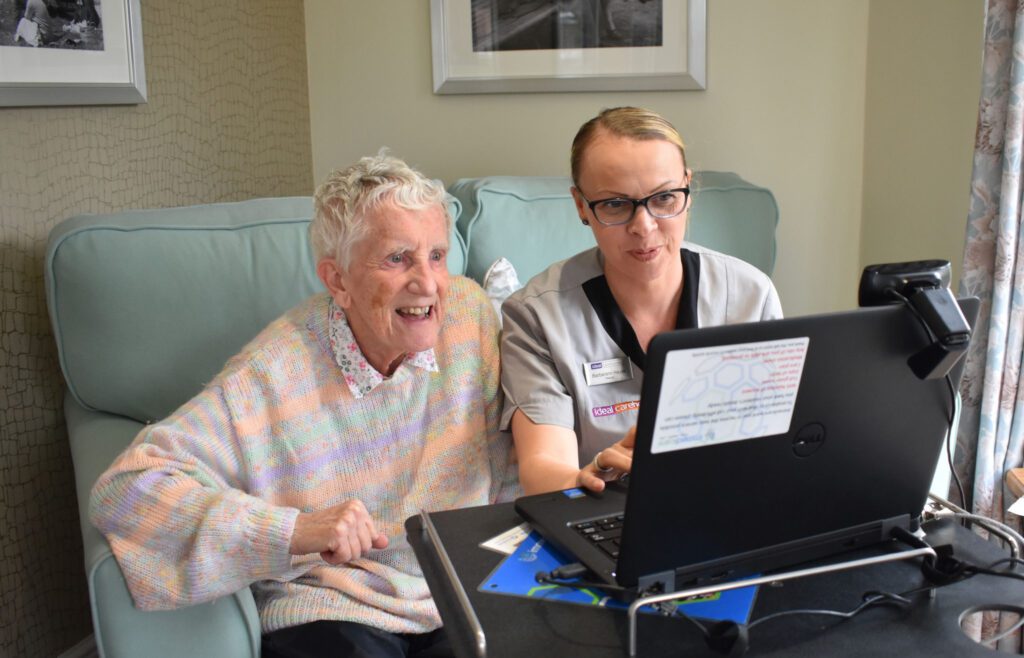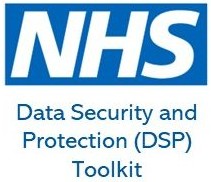Expanding telemedicine for dementia patients could save NHS millions and ease the pressure on frontline staff, new data shows
New insights, revealed exclusively during World Alzheimer’s Month, show how a telemedicine service is dramatically reducing local healthcare costs and frontline resource pressures
Immedicare calls on healthcare decision-makers to explore the expansion of its
telemedicine service to further support dementia care in the UK
The expansion and utilisation of telemedicine services for dementia patients could help the NHS save millions of pounds in healthcare costs and dramatically reduce the strain on under-pressure hospitals, A&E departments and GP surgeries, new insights reveal.
New data from Immedicare, a unique telemedicine joint venture between Airedale NHS Foundation Trust and Involve Visual Collaboration Ltd, reveals how it is delivering significant cost and resource savings in the regions it operates in right across the UK.
Within the UK’s care homes, there is a high prevalence of falls among frail and elderly residents, many of whom also have dementia. And falls are the number one reason for calls into Immedicare’s “digital hub” with an average of 80 per cent of those suffering falls remaining in their place of residence following assessment by the Immedicare clinical team.
In addition, the new insights show that, on average, 60 per cent of all consultations into its digital hub do not require any onward referral to a local health care professional and 90 per cent of patients remain in their place of residence after their consultations.
Immedicare, which provides a 24-7 telemedicine service to hundreds of care homes across the country, has released statistics showing that around 60 per cent of calls that would normally have gone to a GP is being mitigated by the experienced support of Immedicare’s clinical care team.
They also reveal that the Immedicare service is helping to reduce the impact on urgent care services, which includes ambulance conveyances, A&E attendance activity, non-elective admissions, and also reducing both in and out of hours GP referral numbers.
A quarter of all hospital beds are taken by people living with dementia, and dementia patients also account for 20 per cent of all hospital admissions. So, when scaled nationally, the benefits of expanding telemedicine services more widely could run into the tens of millions of pounds.
“Not only are our telemedicine services helping dementia patients receive excellent care and support in the familiar surroundings of their care homes, which is key for many who find hospitals challenging environments, but we are also helping to reduce the strain on local healthcare providers. And we can prove it,” said David Butler, Commissioning and Development Lead for Immedicare.
“With 60 per cent of people receiving home care services living with dementia and an estimated two million people expected to be living with dementia by 2050, there is an obvious and growing need to expand these services across more UK care homes, so we are calling on healthcare decision-makers to further explore the benefits of adopting telemedicine solutions like Immedicare.
“Many of the patients we serve, currently around 20,000 in the UK, are living with dementia – and there is an estimated 850,000 across the UK, – so telemedicine really does have the power to transform the care they receive, whilst delivering the costs, efficiency and resource savings the NHS is crying out for,” added David.
“Telemedicine isn’t the single solution to the NHS’s challenges, but these results show it can bring very positive benefits, generate significant savings and help reduce the strains we know exist on the frontline of healthcare delivery in this country.”
The insights were released by Immedicare to raise awareness during World Alzheimer’s Month, an international campaign held every September to raise awareness and challenge the stigma that surrounds dementia. World Alzheimer’s Day is Saturday, 21st September 2019.
In terms of the growing scale of the issue, the cost of dementia in the UK is expected to more than double in the next 25 years, from £26 billion to £55 billion in 2040.
Key stats on dementia [source https://www.dementiastatistics.org/statistics-about-dementia/):
- 850,000 people are estimated to be living with dementia in the UK
- 38 per cent of the population know a family member or close friend living with dementia
- 1 in 3 people born in the UK this year will develop dementia in their lifetime
- One million people in the UK will have dementia by 2025 and this will increase to two million by 2050
- Every three minutes someone in the UK develops dementia
- The cost of dementia in the UK is expected to more than double in the next 25 years, from £26bn to £55bn in 2040
- 60 per cent of people receiving home-care services are living with dementia
- In England and Wales, the number of people living with dementia who need palliative care will almost quadruple by 2040
- ¼ of hospital beds are occupied by people living with dementia who are over 65 – 25 per cent of beds in hospitals are occupied by people living with dementia
- 20 per cent of hospital admissions of people living with dementia are for preventable conditions




